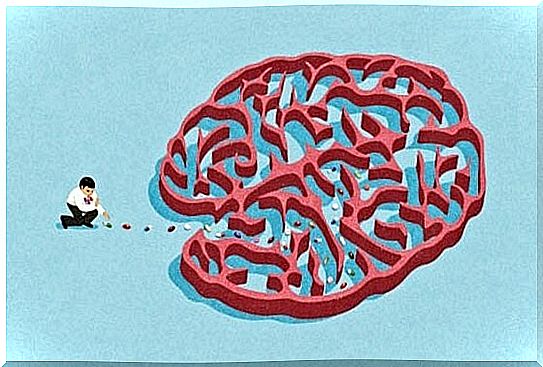The Renaissance Of Antipsychiatry

Antipsychiatry is a controversial movement that emerged in the late 1960s and early 1970s. It took one of his main inspirations from the Hungarian psychiatrist Tomas Szasz. He was also a professor at Syracuse University in New York. But the person who coined the term was David Cooper in 1967.
The antipsychiatry movement proclaimed itself, as the name implies, a movement against the theory and practice of psychiatry. Or at least they were against the methods used at the time.
The proponents of this movement argued that psychiatry was a pseudoscience with a very weak foundation. They also maintained that it was not a medical discipline but more like an ideology. In addition, they said psychiatry tried to exert control over the human mind by using labels like “normal” and “abnormal.”
This movement resonated with the people because its approaches were revolutionary. It became a relevant and effective voice against controversial treatments such as lobotomy and electric shock. Over time, it lost much of its influence. But it never completely disappeared. Now it seems that we are dealing with a rebirth, with the help of Dr. Bonnie Burstow. She is a professor at the University of Toronto. She recently opened up a course in antipsychiatry at the university.
The argument of antipsychiatry
Antipsychiatry is a movement that belongs to psychiatrists, psychologists, physicians, philosophers, and many “mentally ill” people known as “survivors.” They believe that mental illness in itself does not exist. One of their main arguments is the fact that so far there is no clinical evidence to show that the mind can get sick. Because neither brain scans or CAT scans, no other test, have provided evidence that allows us to use the term “mental illness.”
Members of the antipsychiatry movement have also spoken out against the way presumed mental pathologies are defined and classified. According to them, there is no scientific method behind psychiatric practice, in the strict sense of the term. They say the “mentally ill” are labeled this way thanks to the decision of about 3,000 American psychiatrists.
The movement has also strongly criticized the way lobotomy had been introduced as a method of treating “mental illness”. The inventor of the lobotomy, Egas Moniz, performed a procedure to remove the prefrontal lobe of the brain in a monkey. The result was that the monkey showed calmer behavior. So he immediately applied the method to humans. He received the Nobel Prize for his “invention”. It was based only on a one-off experiment and only with a single monkey.
Antipsychiatry claims that the drugs for “mental illness” are actually a form of chemical lobotomy. In their view, instead of curing the patient, it only progressively leads to deterioration and death. They think psychotherapy is much more helpful. Because a “mental illness” is not biological but symbolic and cultural.
Bonnie Burstow and Antipsychiatry
In the world there are many voices that continue to question biological psychiatry. Yet almost every health system in the world has imposed it as a form of treatment. The followers of antipsychiatry believe this happened because it is much cheaper and more profitable to treat people with problems with medication. The pharmaceutical industry would be behind all this. While a pill can ease anxiety in just half an hour, therapy takes many hours.
The effect of medication in psychiatry has been questioned in several studies. There are very few cases where a real improvement has been observed. Rather, the opposite occurs. The serious side effects of this medication greatly affect the body and mind of the patient.
Professor Bonnie Burstow has picked up on all these claims again. Her association with training in antipsychiatry is the first step in establishing this school of thought. It’s a real milestone.
But most psychiatrists dismiss this whole movement as pure ideology with no scientific basis whatsoever. They claim it is an absurd attack. They say it has more to do with politics than science. Yet it is true that some of the tests that support the existence of “mental illness” today are at least questionable.
Conversational Therapy
Bonnie Burstow encourages the treatment of problematic mental illness through a variety of conversational therapies. People diagnosed with schizophrenia have used these methods. In some cases, they have achieved good results. This was especially true with the people who were not too unbalanced.
It is a fact that many psychiatrists abuse medication. But it is also true that this medication helps many people in extreme situations. In this sense, medication is something positive to relieve the patient’s symptoms. It gives them time to find an effective therapy that suits the patient’s needs.
Perhaps the best option is to encourage constructive dialogue between psychiatry and antipsychiatry. Because in this way we can find a more humane and more effective treatment for the people who need help in this difficult field.









